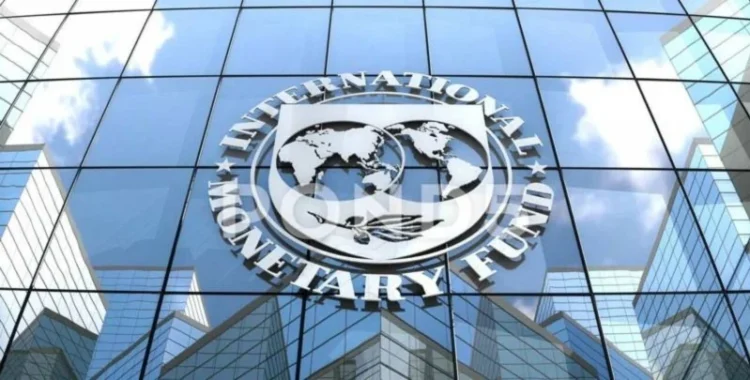Publisher: Maaal International Media Company
License: 465734
IMF: India’s economy to grow at 6.4% in 2025, while Germany’s will grow at 0.1%
The International Monetary Fund’s World Economic Outlook report, issued in July 2025, monitored signs of slowing global economic growth, amid a discrepancy in performance between advanced and emerging markets. It also forecasts a relative improvement over the next two years, driven by improved financial conditions and stable energy prices.
According to the report, the global economy is expected to grow at 3% in 2025, maintaining a moderate pace similar to the 2024 projections, with a slight increase in growth to 3.1% in 2026. The Fund notes that these rates reflect a decline in momentum in advanced economies versus a gradual rise in emerging economies, particularly in Asia and the Middle East. The report indicated that tight monetary policies and slowing productivity growth continue to weigh on advanced economies. The eurozone is expected to record limited growth of no more than 1% in 2025, while the United States maintains growth at 1.9%.
Conversely, China, India, and Thailand are expected to lead the growth engine in Asia, with China expected to record growth of about 4.8% and India around 6.4%, driven by increased public investment and a gradual recovery in domestic demand.
اقرأ المزيد
In the Middle East and Central Asia, the IMF projects growth of 3.4% in 2025, supported by improved financial conditions, stable oil prices, and increased government spending on infrastructure and transformation projects. Saudi Arabia leads the Gulf and regional economies in terms of growth, with GDP expected to grow by 3.6% in 2025 and 3.9% in 2026, one of the highest growth rates among economies in the Middle East and Central Asia, according to the IMF report. This is due to rising demand for state-led projects and the continued impact of the OPEC+ agreement on production cuts.
Last June, the IMF estimated Saudi Arabia’s GDP growth in 2025 at 3.5%, up from 3%. It attributed this to factors including demand for government-led projects and support from the OPEC+ plan to phase out oil production cuts.
The IMF recommended supporting financial stability through flexible prudential policies, enhancing infrastructure investment spending, and transitioning to a green economy, in addition to structural reforms aimed at raising productivity and improving the business climate, especially in emerging and developing markets. The World Economic Outlook is a survey of economic prospects and policies conducted by the IMF staff, usually published twice a year, with occasional updates. The report provides analyses and forecasts of the global economy over the near and medium term, essential elements of the IMF’s monitoring of economic developments and policies in its member countries and the global economic system. It addresses issues affecting advanced, emerging, and developing economies, as well as topics of current pressing importance.








